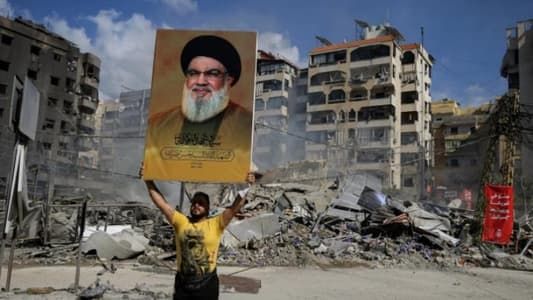
Israel deeply infiltrated Hezbollah, closely monitored its leaders and ultimately killed its leader, Hassan Nasrallah, according to a New York Times (NYT) investigation.
Because he thought Israel had no interest in a full-scale conflict, Nasrallah did not think Israel would murder him. For years, Israeli espionage services had been monitoring his whereabouts.
He and other senior Hezbollah leaders were killed when Israeli F-15 warplanes detonated bombs on his bunker on September 27. Nasrallah's killing marked the end of a two-week offensive that blended military might with clandestine technology prowess. Two decades of meticulous intelligence work were put into the campaign in anticipation of a full-scale conflict.
Israel had experienced the biggest intelligence failure in its history when Hamas-led militants attacked it in October 2023, thus defeating Hezbollah was a major win for the nation.
As part of a larger conflict that has left thousands of dead in Lebanon and over a million displaced, the Hezbollah campaign defanged one of Israel's most formidable enemies and inflicted a blow to Iran's regional strategy of supporting and financing paramilitary groups determined to destroy Israel.
The intense Israeli intelligence focus on Hezbollah shows that Israel’s leaders believed that the hezb posed the greatest imminent threat to Israel.
According to the NYT, Israel's intelligence agencies refined intelligence gathered from the 2006 war to produce information for potential war with Hezbollah. By September, they had target portfolios for tens of thousands of Hezbollah leaders, operatives, weapons caches and missile locations. To gain an advantage in an eventual war with Hezbollah, Israel developed plans to sabotage the militia from within. Unit 8200 and the Mossad championed a plan to supply Hezbollah with booby-trapped devices that could be detonated at a future date.
Israeli engineers mastered placing PETN explosives within the batteries of electronic devices, turning them into small bombs. The more difficult operation fell to the Mossad, which tricked the group into buying military equipment and telecommunication devices from Israeli shell companies.
In 2014, Israel seized an opportunity when the Japanese technology company iCOM stopped producing its popular IC-V82 walkie-talkies. Israel began manufacturing its own replicas of the walkie-talkies with small modifications, including packing explosive material into their batteries.
Over the next three years, Israel's increasing ability to hack into cellphones left Hezbollah, Iran and their allies increasingly wary of using smartphones. Israeli intelligence officers reconsidered the pager operation and worked to build a network of shell companies to hide their origins and sell the products to the militia.
The pager operation was not fully in place in October 2023, when the Hamas-led attacks ignited a fierce debate within the Israeli government about whether Israel should launch a full-scale war against Hezbollah. Israeli intelligence analysts discovered a potential problem with the operation, and Israel dealt with it swiftly this year.
For nearly a year, Israeli intelligence and the air force ran roughly 40 war games built around killing Hezbollah leaders.
After the back-and-forth attacks, Israel's government debated opening a "northern front" against Hezbollah. The Israeli military and the Mossad devised different strategies for a campaign against Hezbollah. In late August, Mossad chief Barnea wrote a secret letter to Netanyahu advocating a two-to-three-week campaign that included eliminating more than half of the group's missile abilities and destroying installations within about six miles of the Israeli border.
However, new intelligence disrupted the planning, and Hezbollah operatives became suspicious of the pagers. On September 11, intelligence showed Hezbollah was sending some of the pagers to Iran for examination.
On September 16, Netanyahu met with top security chiefs to weigh whether to detonate the pagers in a "use it or lose it" operation. The following day, the Mossad ordered an encrypted message to be sent to thousands of the pagers, and seconds later, the pagers detonated. The Israeli government, with the support of high-ranking defense officials, opted for all-out war, a campaign marked by escalations.
The most consequential decision remained: whether or not to kill Hezbollah leader Nasrallah. On September 26, Netanyahu and other top advisers discussed approving the assassination and whether to tell the Americans in advance. They agreed to keep the Americans in the dark.
Soon after, Israeli F-15 warplanes over Beirut dropped thousands of pounds of bombs.



Comments